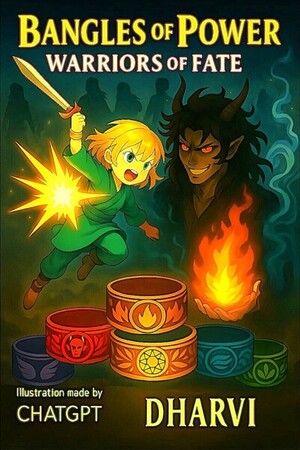Chapter 1:
The Game Freedom
I died as an NPC
In my old life I played a lot of video games growing up, even up till my death. I first started playing when I was a kid when my parents were going through their divorce. It was my escape from all the parts of life I didn’t like. Bullying, rejection, being told I wasn’t good enough with anything.
In video games I could defeat evil and darkness, maybe even save the world. It became a skill to naturally adapt to difficulty solving problems, pushing forward to continuing the stories of the characters, and the satisfaction of completing it.
Over time games evolved, so did the consoles and systems needed to operate them. The latest one was called the game called Freedom made by Bubblegum. This game was a full dive utilizing a Virtual Reality system through a headset visor that submerged the user into the game targeting the senses and body’s central nervous system.
Bubblegum recently began to rise due to a new artificial intelligence operating system called Chronos. With it they developed a number of games but the hype was the new immersive MMORPG (Massively Multiplayer Online Role-Playing Game) called Freedom.
The title of the game was basically just that. An Open World genre with infinite possibilities. What made it different from the rest of the other games was the customization. In the game basic skills can be obtained but unique were ever the same and never duplicated within the game.
Sometimes there were skills that were similar in their base functionality, but the innate ability of the skill is determined by the player developing and usage of that skill. Players earned their skills by their gameplay styles and as they progressed in the game, they earned skill points to bolster the character’s attributes such as; durability, dexterity, intelligence, strength, speed, wisdom, and charisma.
In Freedom these attributes are important when building your character and in turn help your character to develop skills that they can utilize in the game. These skills could be anything such as how long their character can hold their breath underwater, to unique combative skills utilized in battle, and even crafting or building things.
The more time and utilization the player did to use the skill further gave it the potential to enhance the skill to a point that it could be named by the player themselves, making the skill “unique” and for the most part nontransferable. With one exception.
In Freedom, under the agreement of the player or players, skills can be obtained through acknowledgment when accepting certain conditions like wagers in game modes such as Player vs Player (PVP), or in the Raids under certain situational circumstances within the game.
In the Player vs Player (PVP) mode it was more of a dueling system in which the duels would be broadcasted on the servers or private arenas. For team battles that were PVP all members had to put up skills or wagers and all members from every team had to agree for the skills or other wagers to be transferred at the end of the battle.
Wagers in game could be materials, in game currencies, weapons, and unique skills. The most intriguing aspect of all these components is the Raid System in which the Raid Boss’s difficulty was determined by the number of players that entered as one team to defeat the Raid Boss for loot. The more players, the higher the difficulty rate. The higher the difficulty, the rarer the loot gets dropped after the boss is defeated. Through this loot system, players can also acquire unique skills by this random loot system OR by a built-in function specifically for Raids called Betrayal.
The maximum number of players that can join a raid team is fifty. Raids of this magnitude had to be initiated by a player with a clan affiliation and set the number of players that the raid would be open to participate. The initiating player is then given a temporary title called Raid General and then sets the terms and conditions of the raid and sends out invitations to players they want to participate in first.
Once that step is completed, they can then open it to the public to fill the remaining spots of the desired number of players they set for the raid. At the last step, on the day and time of the raid there is one option that can be selected and that is Betrayal.
For Betrayal the Raid General can initiate a wager of a player or players to try and obtain or acquire their unique skills during the raid itself. To do this the Raid General also has to have an equal number of players to agree to give up or wager something for the ‘marked’ players that are being targeted. The marked players will receive a prompt to accept and make a counter wager to be agreed upon.
Once all wagers have been confirmed, the marked players can be killed in game at any point in time during the raid. However, if the marked players are killed during the raid; the raid difficulty condition based on the total number of players entering the raid remains set. This has led to many of the Betrayal functions being executed after the Raid Boss is defeated, in which the raid cannot be resolved until all conditions and wagers if agreed upon are rectified within the game’s level.
Since the marked players for the raid are notified, those players set the load out conditions for the raid party. They choose the weapons that the players can only use in the raid itself and how many slots for weapons can be utilized. But the marked players for Betrayal can carry one more slot of weapons to fight against the rest of the raid party led by the Raid General.
Once the players have resolved all conditions of the raid stage, all the wager conditions have been met; the raid will resolve by allocating the loot to the raid party members including unique skills. All marked players for Betrayal that are defeated lose all items, skills acquired, in game currencies, and lastly the player’s character dies in game and cannot be played again. When a player loses their character by the Betrayal function in the raid, the player must start over building a new character to play in the game.
The way Freedom allows players to obtain skills and skill points are by the roles, missions, side missions, raids, raid bosses, everything that you can think of contributes to obtaining skills for the player’s character. The biggest decision however is when the player chooses their alignment from either The Righteous or The Wicked.
No gamer is entirely sure how this aspect of the game works entirely other than players noticed that if they picked The Righteous alignment, they could have perks like healing and create certain barriers. When players picked The Wicked alignment, they noticed they obtained perks like increased damage and could steal items from players or in game shops. The game, however, only allowed the players to choose a different alignment between The Righteous and The Wicked twice. This allowed players an opportunity to gain skills from either alignment before settling on staying in one alignment for obtaining skills.
Freedom also has a large selection of different classes to unlock to obtain skills as well. The game’s mechanics allows for endless possibilities to create a unique character with unique skills. Or at least that’s what the advertisements always said. Upon launch Freedom became one of the biggest games for MMORPG, so much that the rating of the game was heavily debated until it was ruled to be 17+. All within good reason as some gamers began to conduct inappropriate actions to other players on its release date. Bubblegum Studios immediately stepped in and banned much of the inappropriate actions in game by inserting a code that began to shut the game and player’s account down for attempting sexual conduct in game. After the controversial launch, Freedom grew to a game that had 500,000,000 player accounts within the first week of launching.
Factions and Clans quickly formed among players to fully discover the secrets of Freedom. Was it all hype or was this game truly unique? Players began to unlock skills and began to build communities and territories. Some established nations and kingdoms within the game. Within one year the first expansion was launched and included more classes and new regions with lore. The name of the expansion was Leviathan.



Please sign in to leave a comment.